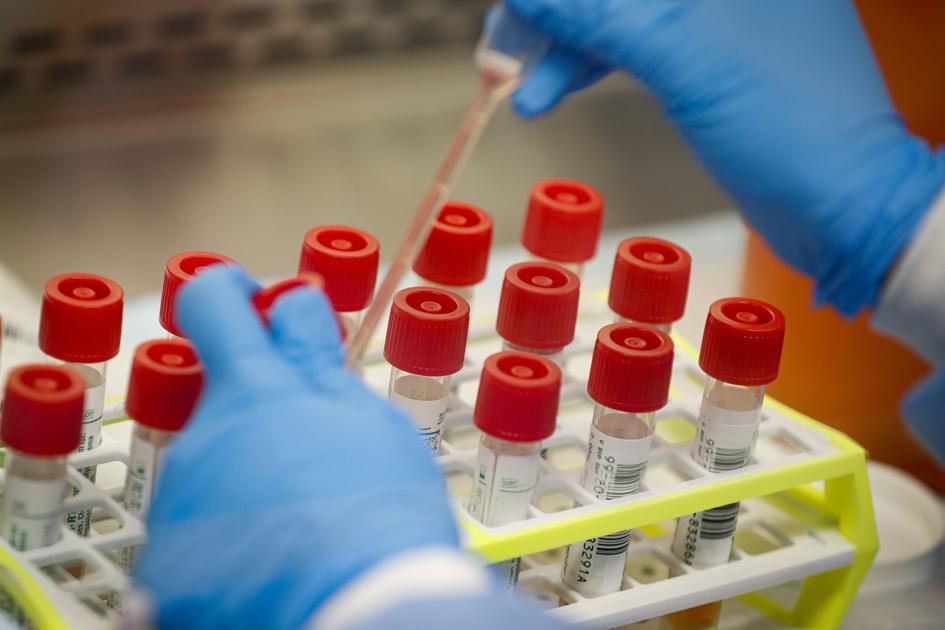The average number of people testing positive for COVID-19 daily in El Paso County is rising and has exceeded the highs set in April and May, public health data show.
El Paso County Public Health reported the 14-day average number of cases in the county reached about 38 positive COVID-19 cases Sunday after rising since about June 14. The previous 14-day average highs were reached in April and late May when an average of about 28 to 29 people were testing positive each day for COVID-19, the disease caused by the coronavirus, county public health data show.
The state has also had a rise in new average daily cases since June 16, with a three-day average of 235 new cases Saturday, although it has remained far below the state-wide peak in new cases reached in April of a three-day average of 726.
Click here for the latest CDPHE numbers.
The increase statewide and in El Paso County may be tied to summer travel as residents from nearby states that have seen an increase in coronavirus cases — such as Arizona, Utah and Texas — come to Colorado on vacation, said Dr. Robin Johnson, medical director for El Paso County Public Health.
Increases in cases could also be driven in part by gatherings planned around Father’s Day and residents spending time outside but not maintaining prevention measures such as wearing masks, she said.
“We just want to get outside and play.” Johnson said. “…While we can still participate in these activities, we can’t loosen our diligence around prevention measures.”
Johnson said she expects the number of COVID-19 cases to continue rising because of the delay associated with being exposed to the virus and showing symptoms. But if more residents practice social distancing and other prevention measures such as wearing masks and better hand-washing, it could change the trend, she said.
If the cases continue growing, El Paso County could have some of its state-approved variances for activities re-examined and more stringent rules put in place, Johnson said. The county received variances to open restaurants at higher capacities than the state guidance, open churches at higher capacities, open the Cheyenne Mountain Zoo and other activities.
“We really have to stay the course so we don’t lose the ground we already gained and end up with restrictions that are much more onerous,” Johnson said.
Residents between 20 and 29 years old are the group most likely to currently be diagnosed with the virus and so that age group needs to be most conscientious about their behavior to help slow the spread, she said. While younger residents are less likely to need hospitalization, they run the risk of infecting older adults, such as their grandparents, she said.
As the number of cases rises, it’s likely hospitalizations may also increase in about 10 days although that is not yet reflected in the data, Johnson said, adding hospitals in the county are prepared for those patients.
Penrose-St. Francis Health Services has continued to treat COVID-19 patients, including many from other areas, and are ready for a surge even as they hope to prevent one, said Dr. Betsy Kleiner, infection control officer for the hospitals.
“What we want to do is stem this change that we are seeing now,” she said.
Washing hands, wearing a mask and social distancing could all help change the trend, she said.
Colorado College molecular biology professor Phoebe Lostroh said she expects exponential spread of the virus in coming weeks if behaviors aren’t changed.
“The situation can get very bad, very quickly,” she said, adding she would like to see another stay-at-home order and mandatory face mask order to help slow the spread.
“Everyone needs to put their face coverings on. … Almost anything is better than nothing,” Lostroh said.
Contact the writer at mary.shinn@gazette.com or (719) 429-9264.
This content was originally published here.

